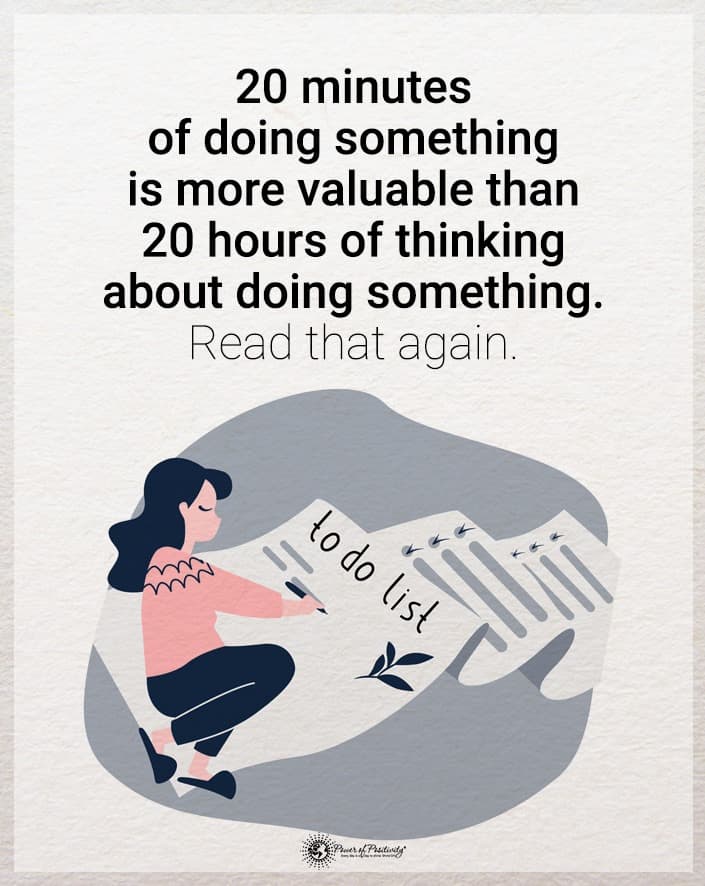Lots of people attach a negative meaning to failure. It’s been drilled into us that only success is worthy of praise and positivity. But there’s a reason that so many highly successful people encountered so much failure before their achievements. That reason is simple – failure is part of the process, and it must be embraced. Once you realize that, you can leverage it to help boost productivity.
Think about it! Have you ever heard of someone who never experienced any negative moments in their life? Of course not! Failure and hard times are part and parcel of any journey. And, arguably, without those mistakes and difficulties, goals are even harder to achieve. The truth is that you can’t be as productive as you need to be if you never fail.
It sounds like a wild concept to imagine failure as something positive. Getting over the mental block of “failure is always bad” can work wonders for your life and bring you success. But how is that possible? Here are three ways failure can help boost productivity.
1. Failure Teaches Valuable Lessons
If you want to be productive, you have to keep learning and using those lessons to improve. Keeping things safe keeps you slow, stagnant, and stuck. That’s why failure is crucial to productivity: as much as it hurts, it also teaches. While you can learn from both successes and failures, there’s something about making mistakes that stick with you. Here are some ways that failure teaches, thereby boosting productivity:
· Failure Teaches Humility
Continued success feels great, but it’s terrible for your pride. You’ll start feeling infallible and get complacent. A bit of failure now and then keeps you grounded in reality. You’ll know your strengths and your capabilities, but you also won’t get carried away. Plus, believe it or not, research shows that humility is crucial for performance – more so than intelligence! In addition, further studies indicate that being humble also allows for better critical thinking and learning ability. Essentially, the lessons from failure that keep your head level are much more important for productivity in terms of performance.
· Failure Provides Feedback
When it comes to constructive criticism, no one is as clear a positive critic as a failure. When your plans fail, and your success slips away, you’re getting a direct message that something’s not working. It’s the perfect time to reassess what worked and what didn’t and ask yourself tough questions about your methods. What was it that bogged you down? The way you failed will tell you exactly what needs fixing if you’re brave enough to listen to its wisdom. This outcome also lets you re-evaluate your course of action, values, and goals so that you don’t waste time.
· Failure Can Help Boost Productivity By Promoting Strong Work Ethic
When you only have success, and that success comes easily, you’ll lose the drive to work hard. This phenomenon is commonly seen in the burnout of gifted people. You need to learn work ethic and common baseline knowledge much more than you need to play into talents. Research has even found that early failure often leads to higher rates of success in your career. So if it’s productivity you’re looking for, you’ll find it in a valuably taught work ethic.
Failure Shows You Your True Limits. A lot of people believe that they’re less capable than they indeed are. When you fail, you witness a direct example of where your limits may currently lie. With this new information, you can change your approach and play to your strengths while working on your weaknesses.
· Failure Is An Experience
Even ignoring all the other benefits of failure and what it teaches, failure is still an experience. All experiences are ones that you can learn from. No matter the content of an incident, reflecting on it is sure to give you new knowledge. Failure is no exception to that, so approach it with positive thinking as a learning experience.
2. Failure Can Help Boost Productivity By Promoting Mental Strength
Productivity isn’t just about the technical ability to do things. It also implies an ability to continue growing and learning through tough times and difficulties. If you lack mental strength, your productivity cannot be nurtured, and you’re likely to give up when things get complicated. As such, you’ll need that strength to be productive in the long term.
At first glance, failure seems like the kind of thing that will harm you more than help you. How can suffering from that kind of disappointment help your mental strength? When you think about it, though, you realize that this strength must be trained like physical strength. Your “mental muscles” will atrophy or weaken if you don’t give yourself that training! Here are some ways that failure trains that mental strength:
· Failure Makes You Resilient
Resilience is the trait of being able to bounce back and recover from difficulty. Mentally strong people have a lot of resilience, but it seemingly comes from nowhere. When you fail and survive that failure, you’ll become more aware of what you’re capable of mentally. This allows you to practice bouncing back with positive thinking continually. Eventually, you’ll reach the point where your resilience makes you an unstoppable force, even in tough times! This is great for your productivity as you’ll be able to take things in stride without breaking momentum.
· Failure Proves That Change Is Constant
Failure is one of the quickest ways to open your eyes to how constant change is. Things can be a certain way today and utterly different tomorrow, and often, that’s out of your control. Your renewed mental strength from this understanding makes you adaptable. No matter what hardship comes your way, you’ll know that it is temporary, too. As such, you’ll approach situations with the productive desire to work on what you can control.
· Failure Prevents Rumination
Rumination, or the act of unproductive overthinking and worry, can be a real dampener on your progress in life. Those who lack mental strength often waste their time on these destructive thought cycles. When you repeatedly fail, though, you’ve already seen evidence of what can happen. You’ve been through scary times and come out okay. This helps to fight worrying thoughts, keeping you on track and preventing you from getting stuck.
· Failure Fights Fear
One of the reasons people don’t even try to achieve goals is because they’re afraid. When you’re fearful of failure or risk, you wind up becoming unproductive and throwing in the towel too soon. But when you allow yourself to fail, you realize that it’s not all that scary. You build the courage to face those fears and overcome them, and the lessons you learn will render many worries obsolete. If you want to be productive, you have to be brave in the face of uncertainty. Failure helps you achieve that trait!
· Failure Helps You Let Go
Not all failure is a sign that you should keep trying harder. Sometimes, you’ll realize that your current endeavor isn’t suitable for you with the feedback it gives you. In most circumstances, letting go of your path isn’t easy, and it can be tough to allow it to slip by. But with failure, you’re able to see clearly why something isn’t working. On top of that, failure gives you less to lose overall so that you won’t fall prey to sunk cost. This resilience makes it easier for you to move forward with strength and positive thinking.
3. The New Inspiration Can Help Boost Productivity
Productivity is about a healthy balance of commitment and motivation. You can get both of these things from inspiration – and that’s something that failure can provide! When you fail, your world can open up and provide you with a driving force. You’ll be more motivated by intrinsic values and more committed to your goals. Here’s how:
· Failure Spurs You To Try Again
When you make a mistake, you can wallow in it and lose positive thinking. But there’s a better option. You can use it to spur you to attempt it again. When you fail, that means you get the fantastic opportunity to come at things freshly. The mental strength you’ve built from the failure translates into grit and determination, sparking a desire to win the battle. You’ll be more productive as you work towards your next attempt! It’s almost like a chance to recommit you to your goals.
· Failure Brings Creativity
Sometimes, overcoming hurdles requires thinking outside of the box. Failure gives you the chance to take your new lessons learned and be creative with them. You can change your approach, switch up your mindset, and use new angles. You’ll be inspired to try out what you’ve discovered! This way, instead of unproductively doing the same thing repeatedly, you consistently attempt a new method.
· Failure Shows You That There Are Second Chances
This world isn’t one where you only ever get one shot at something. It’s a world filled with possibilities! When you fail, you get to try again. You get to keep trying in wiser, more productive ways. And when it stops being productive to try, you can move on more innovative and more substantially to other new chances. Having this mindset can inspire you, reminding you that there’s no such thing as wasted productivity. If you’re productive and working towards something, it’s all an investment into your future for the upcoming changes.
· Failure Is Part Of A Healthy Pattern
The truth is that no success is linear. It’s unnatural to have nothing but success. Everyone’s journey has its fair share of ups and downs. It would be best if you had valleys to get to peaks, and failure shows you that. Instead of viewing failure as a significant step back, you’ll realize it’s part of many steps collectively moving upwards. You can’t tell us that this isn’t an inspiring concept! Plus, after every failure, you’ll know that your chances of succeeding and jumping forward in your journey have increased. That’s pretty inspiring, too.
Final Thoughts On Some Ways Failure Can Help Boost Productivity
If you want to see progress and good use of your time truly, failure is necessary. Instead of being obsessed with constant success, remember that your journey will have hurdles, and you’ll stumble. What matters is how you use those instances to pick yourself back up again.
Failure can teach, strengthen, and inspire, increasing your productivity in the process. All you have to do is embrace it when it comes and use it to your advantage to help boost productivity.



















